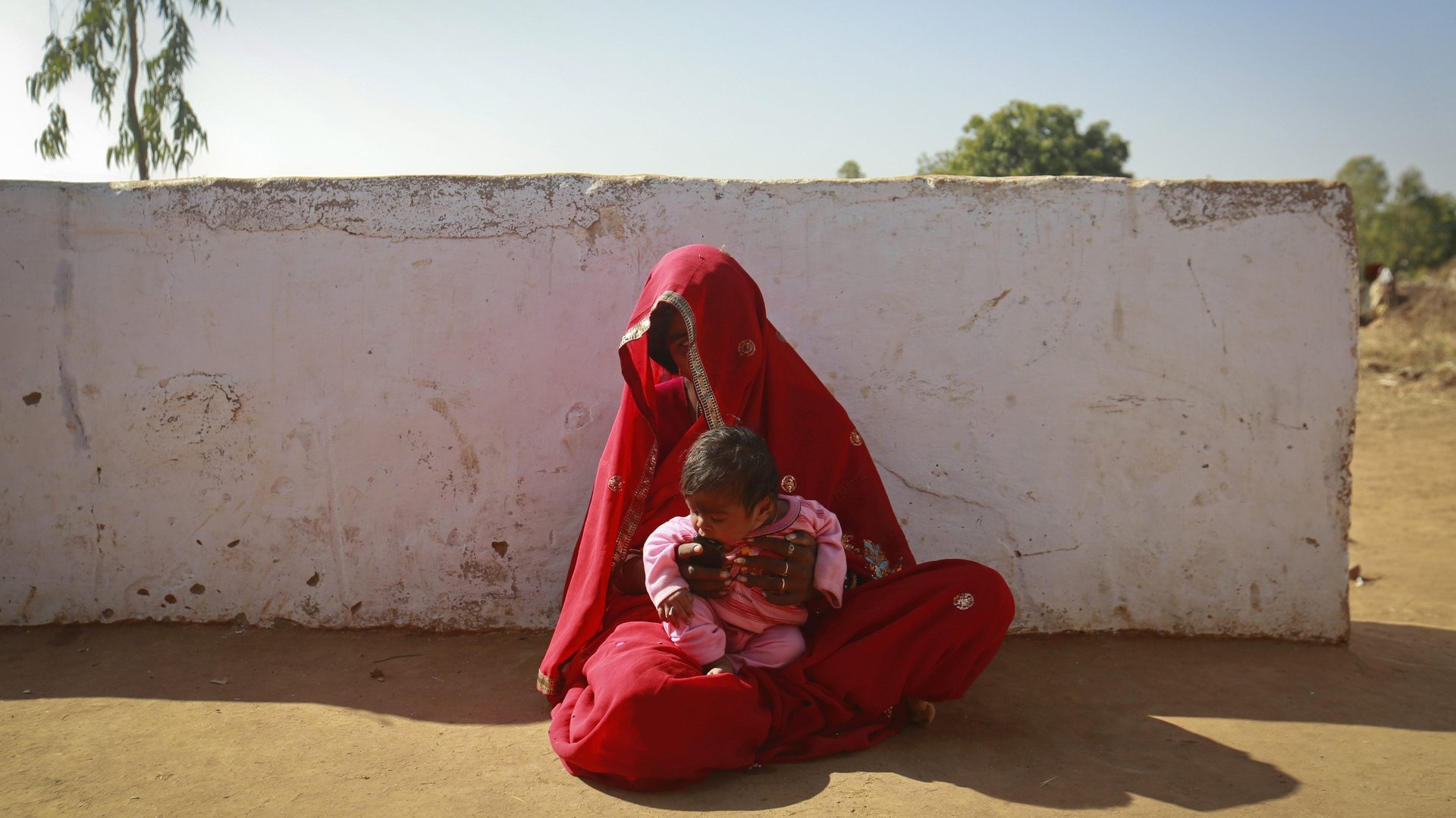Bangladesh’s prime minister calls out the hypocrisy of rich nations critiquing her child marriage policies
Bangladesh’s prime minister, Sheikh Hasina, has positioned herself as a champion of women’s empowerment since taking office in 2009. She’s been recognized internationally for her efforts: In September Hasina was awarded the United Nation Women’s “Agents of Change” award, for creating opportunities for women in the workplace, improving access to education for girls, and instating the National Women’s Development Policy in 2011, which guaranteed equal opportunity and entitlement for women in Bangladesh.


Bangladesh’s prime minister, Sheikh Hasina, has positioned herself as a champion of women’s empowerment since taking office in 2009. She’s been recognized internationally for her efforts: In September Hasina was awarded the United Nation Women’s “Agents of Change” award, for creating opportunities for women in the workplace, improving access to education for girls, and instating the National Women’s Development Policy in 2011, which guaranteed equal opportunity and entitlement for women in Bangladesh.
But now she’s pushing for legislation that would allow child marriage in cases where underage girls become pregnant. Her justification for this line of thinking? Many western countries continue to allow child marriage in special cases.
Already, despite having a law on the books banning marriage under the age 18 for women and the age of 21 for men, Bangladesh has one of the highest rates of child marriage in the world, and the highest in Asia. Fifty-two percent of girls in Bangladesh marry under the age of 18 and 18% before they turn 15.
The prime minister has also been vocal in her criticism of child marriage on the international stage. In 2014, Hasina publicly committed to ending child marriage in Bangladesh by 2041. However, that same year, the Bangladesh cabinet—a decision-making committee which includes most senior ministers, including the prime minister—put forth a proposal to lower the minimum age of marriage for girls from 18 to 16. The move was widely criticized and ultimately did not pass a vote in the Bangladesh parliament.
On Nov. 24, 2016, the cabinet approved draft legislation removing the current age minimums for “special circumstances, such as accidental or unlawful pregnancy.” Parliament is expected to consider the bill in the coming weeks.
Critics say the bill would weaken the existing law and send the message to parents that child marriage is acceptable if an unmarried girl becomes pregnant. Worse, an exception for “unlawful pregnancy” might lead to cases where girls who have been raped are forced to marry their rapists—essentially legitimizing statutory rape, says a spokesperson from Girls Not Brides Bangladesh.
And since the rule does not clearly define all the potential “exceptions,” if passed, it could make it easy to circumvent the marriage age law entirely. Statements made by the prime minister suggest that exceptions could be made in a case where a marriage would protect a girl’s “honor” and the family’s reputation, reports Reuters.
Hasina has justified the policy by pointing to Western countries that allow marriage for teenage girls in certain cases. “She says that the countries that donate money to Bangladesh do this so how can they tell us this is wrong?” says Barr. “And she has a point.”
According to Pew Research over 116 countries allow people under the age of 18 to get married. In England, Wales, and Northern Ireland, the minimum age of marriage is 18 but children can marry at the age of 16 or 17 with parental permission. In Scotland, the minimum age of marriage is 16—no permission necessary. In the US, laws vary from state to state. In most, the legal age for marriage without parental consent is 18, and 16 with parental sanction. In Australia, if one person in the marriage is 18 or older, with judicial approval they can marry someone as young as 16.
“I honestly do think that this law is modeled on laws from other countries, particularly western countries. This is an argument [Hasina] has made over and over,” says Barr. In fact, when Barr met with a Bangladeshi government official to discuss the harm that child marriage causes in the country, the official said, “But child marriage is legal in the UK—so why shouldn’t it be allowed here?” All of which suggests, Barr says, “the need for us to talk to donors about their own consistency on this issue.”
In Bangladesh, Hasina has framed the proposed legislation as an effort to be culturally sensitive: “The law has been formulated taking into consideration the reality of our socio-economic condition in rural areas,” Hasina told parliament on Dec. 7. She added that the law was “practical thinking” and “only a father of unmarried daughter realizes the facts.”
Activists based in cities, she argued, do not understand the culture in rural Bangladesh. “They are far away from reality. They never live in villages and don’t have any idea about the social system. The social pulse cannot be understood by staying one or two days in a village,” she said, adding that if the law was too rigid and did not allow exceptions in special cases “particularly unexpected pregnancy,” it would be “disastrous for the society.”